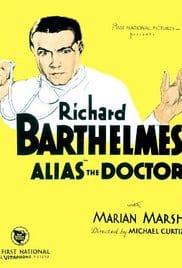Dramatic Dynamite!
Richard Barthelmess is one of those actors who made the transition to sound, but with only marginal success before his style, which was geared of course to the silents which had comprised his career, caused his roles to slowly diminish before he semi-retired in the late 1930s.
Among his earlier sound efforts is the incredibly short 1932 film Alias the Doctor. Running at just an hour there’s little that’s uplifting or even surprising here, yet it’s a surprisingly good little production. Barthelmess is Karl Brenner, the foster son of Martha Brenner. He shares her home with her children Stephan (Norman Foster) and Lotti (Marian Marsh).
On the urging of their mother, both boys enroll in medical school, with Karl becoming a star pupil and Stephan muddling through and spending most of his time carousing and drinking. Karl ends up performing surgery without a license in an attempt to bail his brother out of a jam. After getting uncovered in the event, Karl heads off to prison for a few years while Stephan continues his carousing lifestyle as a minimally successful country doctor.
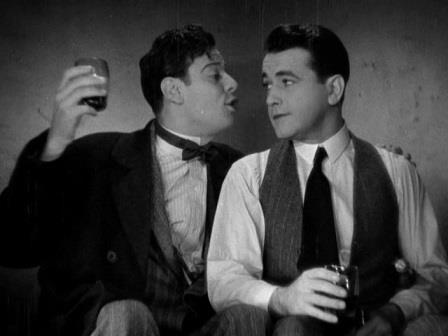 On his return home from prison, Karl learns that Stephan has passed away (presumably from chronic alcoholism). Through yet another twist of fate which is again encouraged by his mother, he begins practicing medicine as his deceased brother, reaching great acclaim in Vienna by doing so.
On his return home from prison, Karl learns that Stephan has passed away (presumably from chronic alcoholism). Through yet another twist of fate which is again encouraged by his mother, he begins practicing medicine as his deceased brother, reaching great acclaim in Vienna by doing so.
As his fame grows as a physician, he tires of his secret life and wishes to return to the farm, which is his true love. Also is his deep love for his ‘sister,’ Lotti. Strangely it seems taboo for ‘Stephan’ to be in love with his sister, yet totally fine for Karl to be. I suppose the viewer can draw their own line in evaluating this degree in potential moral turpitude.
In any case, while Karl is debating leaving his mother (who rears her head every time something good seems to be about to happen to this poor guy) writes a letter to his clinic, exposing his duplicity. Of course by the time the letter arrives she has fallen deathly ill and requires a surgery which only Karl can perform successfully.
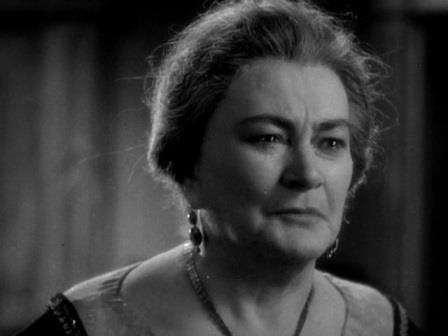 By the time she’s on the table the board of directors has the letter in hand and pulls Karl from the operating theater, only letting him operate after a heartfelt plea from him. Her life saved, he leaves the medical profession and goes back to the farm.
By the time she’s on the table the board of directors has the letter in hand and pulls Karl from the operating theater, only letting him operate after a heartfelt plea from him. Her life saved, he leaves the medical profession and goes back to the farm.
It’s a pretty pedantic plot, but what makes it worth viewing is the direction of Michael Curtiz. Through his adept- and typically quick- pacing he wrings every drop of melodrama from this that can be imagined. Of course we also have the great results of another of Curtiz’ usual collaborations with art director Anton Grot. Many scenes are filled with deep shadows and there are quite a few well designed shots.
Most notably among these latter are most of the scenes involving the autopsy doctor (originally to have been Boris Karloff), many of which light him directly in the eyes, with several being shot through bars in an effective creative touch.
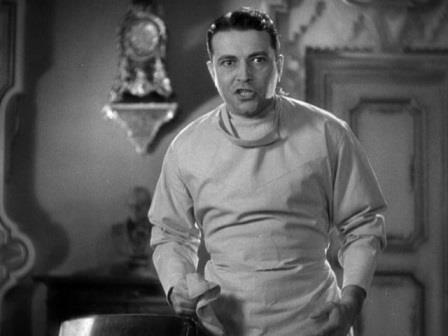 Perhaps the most effective scene is, of course, the pleading finale where Karl begs for the chance to operate to save his mother. Paradoxically, however, as good as this scene is, is also highlights why Richard Barthelmess’ career suffered after the transition to sound. Though earnest and impassioned, there’s too much physical drama in the form of long unnatural pauses along with other periods of frantic gesticulation. The same things that made him such a great silent star proved to contribute to the challenges he suffered later on in sound.
Perhaps the most effective scene is, of course, the pleading finale where Karl begs for the chance to operate to save his mother. Paradoxically, however, as good as this scene is, is also highlights why Richard Barthelmess’ career suffered after the transition to sound. Though earnest and impassioned, there’s too much physical drama in the form of long unnatural pauses along with other periods of frantic gesticulation. The same things that made him such a great silent star proved to contribute to the challenges he suffered later on in sound.
In spite of those shortcomings, Barthelmess is the on-screen glue of Alias the Doctor. Not only is he in most every scene, he’s also the only character with a hint of dynamic allure to them. Marian Marsh as his sister and love interest, isn’t given a lot to do except coo to him. Her scenes seem tangential to the plot to the point where she almost feels like a device created purely in an attempt to drive more conflict in Karl’s secret double life.
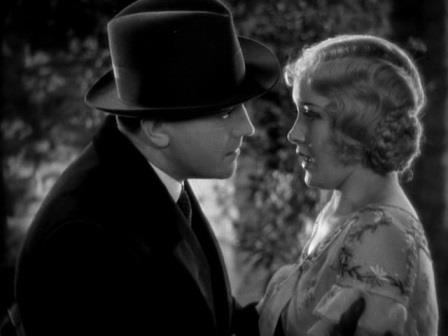 While Norman Foster as Stephan Brenner is an afterthought, Lucille La Verne as Karl’s mother Martha is a real treat. In a vexing performance we are left wondering as to her true motives. Was she really out to help her sons- both of them, or just the natural born one? Or is it just about her own selfish machinations?
While Norman Foster as Stephan Brenner is an afterthought, Lucille La Verne as Karl’s mother Martha is a real treat. In a vexing performance we are left wondering as to her true motives. Was she really out to help her sons- both of them, or just the natural born one? Or is it just about her own selfish machinations?
Alias the Doctor is by no means fine art but rather a strong example of what a good director in Curtiz can do with an unimaginative plot and perhaps sub-optimal casting.
